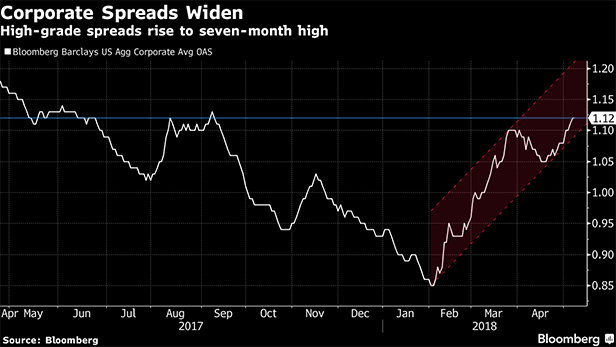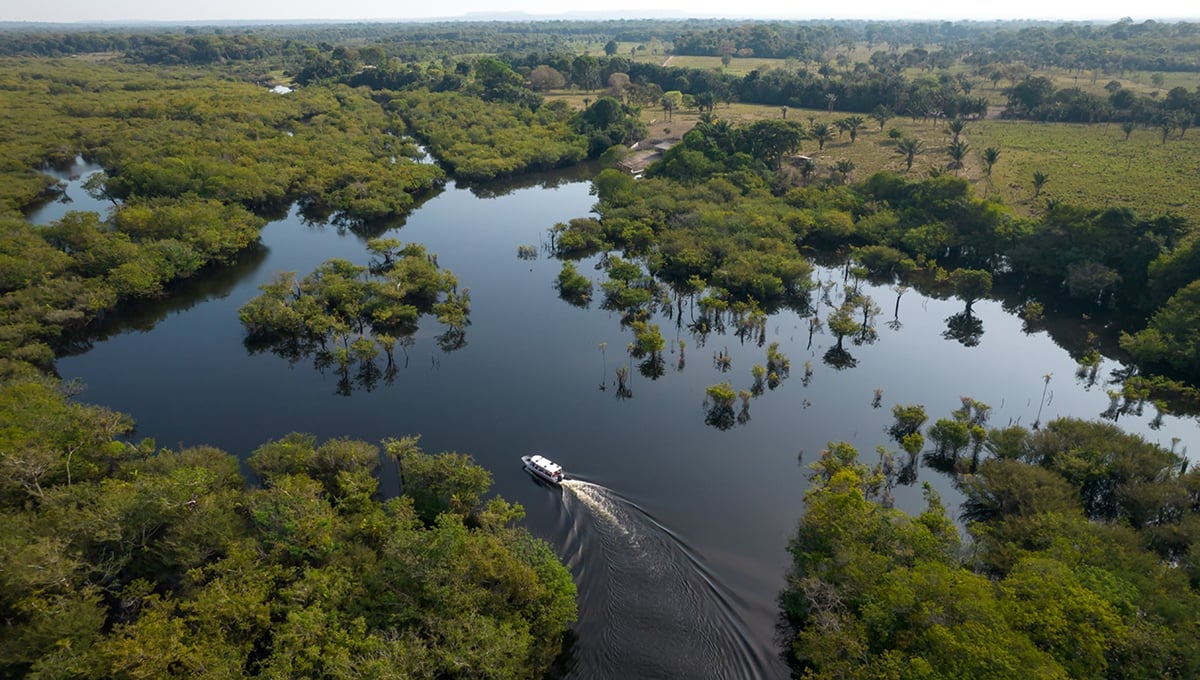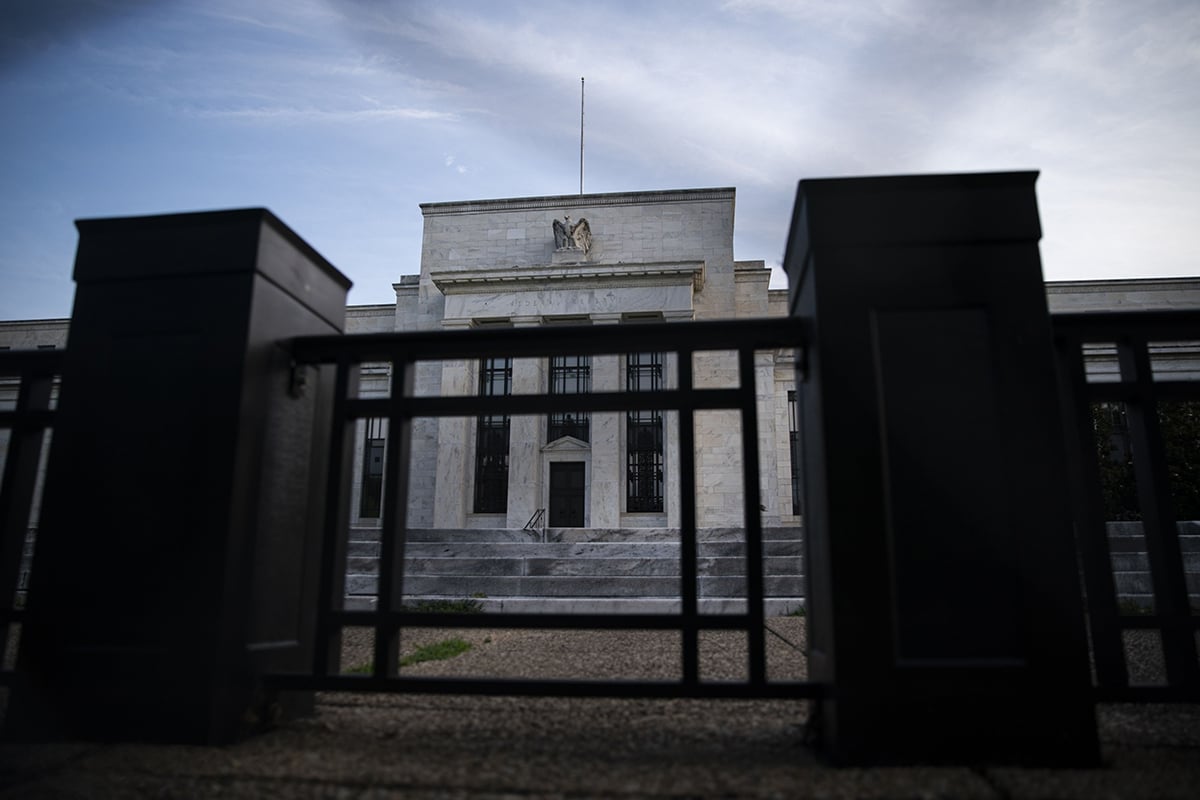Corporate America partied like never before on cheap money overthe past decade, and now comes the hangover.
|
Companies will need to refinance an estimated US$4 trillion ofbonds over the next five years—about two-thirds of all theiroutstanding debt, according to Wells Fargo Securities. This hasinvestors concerned. Rising rates mean it will cost more to pay forunprecedented amounts of borrowing, which could push balance sheetstoward a tipping point. And on top of that, many see the economyslowing down at the same time the rollovers are peaking.
|“If more of your cash flow is spent into servicing your debt andnot trying to grow your company, that could, over time, if enoughcompanies are doing that, lead to economic contraction,” saidZachary Chavis, a portfolio manager at Sage Advisory Services Ltd.in Austin, Texas. “A lot of people are worried that could happen inthe next two years.”
|These concerns seem to be leaking into the market. A BloombergBarclays gauge of average corporate bond spreads has surged to aseven-month high since reaching an all-time low in early February.This has happened at the same time as 10-year Treasury yields haveinched toward 3 percent.
| About $3 trillion of the debtcoming due is rated investment grade, and mostly in notes in thelowest rungs above high-yield junk—in the BBB group from S&PGlobal Ratings or the Baa bucket from Moody's Investors Service.The rest is in high-yield corporate debt and leveraged loans.
About $3 trillion of the debtcoming due is rated investment grade, and mostly in notes in thelowest rungs above high-yield junk—in the BBB group from S&PGlobal Ratings or the Baa bucket from Moody's Investors Service.The rest is in high-yield corporate debt and leveraged loans.
The high-grade bond market in the United States has the lowestcredit-quality mix since the 1980s, according to New York-basedresearch firm CreditSights Inc.
|“Most companies in this universe really need to refinance,” saidGeorge Bory, the head of credit strategy at Wells Fargo Securities.“Some companies have plenty of cash on hand and can simply pay offthe debt if they choose to, but most do not. So they really don'thave much choice.”
|And it's not just the massive wave of refinancings that'sdrumming up worries in the market, it's also the timing for theeconomy. Periods of tighter credit conditions and higher borrowingcosts tend to precede economic hard landings, which happened in thelate 1990s and the mid-2000s, according to Bory. Economists polledby Bloomberg expect U.S. growth to begin to slow over the next twoyears after peaking this year.
|Investors fear that as companies are forced to refinance athigher rates, credit conditions will erode. This could lead to moredowngrades and push some bond buyers to seek out better-ratedissuers.
|“When you start using up your cash flows for higher interestcosts on your debt, it gives you a little less financialflexibility to do other things you may want to do with yourbusiness,” Chavis said.
|But this time around, there's a wild card in the mix: DonaldTrump's tax overhaul.
|The new legislation could impact firms' financing decisions byleaving them with more cash, according to Erin Lyons, a seniorcredit strategist at CreditSights. The market may see slightlyfewer companies issuing debt as a result, she said.
|Additionally, so many firms have already borrowed at such lowrates for so long, some won't need to in the future as conditionschange.
|“At the margin, they're probably not going to be as inclined toborrow as they have been in the past, with M&A being theexception,” Lyons said.
|It's also possible chief executives will return the tax savingsto shareholders via dividends or stock buybacks, leaving them justas dependent on debt for financing operations.
|“When that debt comes due, companies have to decide what to do,”Bory said.
|From: Bloomberg
|Copyright 2018 Bloomberg. All rightsreserved. This material may not be published, broadcast, rewritten,or redistributed.
Complete your profile to continue reading and get FREE access to Treasury & Risk, part of your ALM digital membership.
Your access to unlimited Treasury & Risk content isn’t changing.
Once you are an ALM digital member, you’ll receive:
- Critical Treasury & Risk information including in-depth analysis of treasury and finance best practices, case studies with corporate innovators, informative newsletters, educational webcasts and videos, and resources from industry leaders.
- Exclusive discounts on ALM and Treasury & Risk events.
- Access to other award-winning ALM websites including PropertyCasualty360.com and Law.com.
*May exclude premium content
Already have an account? Sign In
© 2024 ALM Global, LLC, All Rights Reserved. Request academic re-use from www.copyright.com. All other uses, submit a request to [email protected]. For more information visit Asset & Logo Licensing.








